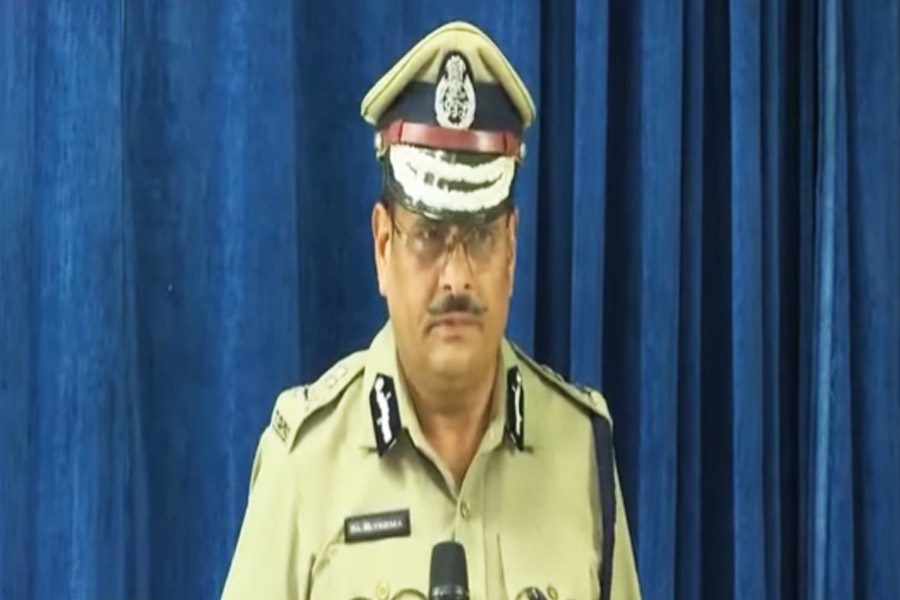In the autumn of 2010, when political winds were shifting in West Bengal, opposition leader Mamata Banerjee, then Railway Minister, denounced Paschim Medinipur police chief Manoj Verma and labelled him as a "CPI(M) agent" due to his crackdown on opposition activities, vowing to make him apologise once in power.
Fast forward 14 years to 2024, Banerjee, now a three-term West Bengal Chief Minister, has appointed the same IPS officer as the commissioner of Kolkata Police, which is under fire for its alleged mishandling of the high-profile R G Kar hospital rape-murder case.
Verma earned his credentials as a strong police officer during one of Bengal's most perilous times - the Maoist insurgency that plagued the district and the entire Junglemahal region in the late 2000s.
When he was appointed the SP in 2008, Maoists had entrenched themselves in large parts of the region, establishing a near-parallel authority.
Verma's approach combined toughness with community engagement, and while his operational style often faced criticism, especially from political opponents, it effectively led to the systematic dismantling of the Maoist stronghold in the district.
By 2010, as the Maoist movement faltered, Verma found himself at the centre of both praise and controversy. He defended the controversial methods of the security forces, including a particularly brutal encounter at Salboni where dead Maoists were tied to bamboo sticks for transportation.
His critics, particularly from the Trinamool Congress (TMC), accused him of being a pawn of the then-Left Front government, calling him a "CPI(M) agent".
Calling him a "CPI(M) agent" for his crackdown on Maoist insurgents that allegedly reinforced the Left government's control over rural Bengal, Banerjee, in a rally in October 2010, vowed to "make him apologise" once her party comes to power.
After coming to power in 2011, the TMC government put Verma on "compulsory waiting," but it wasn't long before it realised his indispensability.
When peace talks between the state and Maoists collapsed, Verma was brought back to head the counter-insurgency force.
He played a key role in ending the ultra-left movement in the region, which culminated with the encounter of top Maoist leader Kishenji in a police encounter in November 2011.
Verma's ability to handle crises isn't limited to the plains. In 2017, as violent pro-statehood agitations swept through Darjeeling, he was appointed Inspector General (IG) of the region.
The hills had erupted into chaos with the Gorkha Janmukti Morcha (GJM) leading the charge for a separate state of Gorkhaland which continued for 104 days.
Verma's tenure in the region was characterised by firm action, with several GJM leaders, including its supremo Bimal Gurung, forced to flee.
Verma's success in Darjeeling earned him further accolades, including the prestigious Police Medal for Meritorious Service in 2017.
Verma's next big challenge came in Barrackpore, where political violence had escalated in the wake of BJP's rising influence post-2019 Lok Sabha elections.
Gang wars, shootouts, and political killings became the order of the day, as the TMC and BJP clashed for dominance.
Appointed as the commissioner of Barrackpore Police Commissionerate, he again deployed his "iron-fist" approach against criminals.
Under Verma's leadership, political violence was curbed, but it came at a cost, as the BJP, especially then-local MP Arjun Singh, accused him of acting in favour of the ruling TMC.
Earlier this year just ahead of the Lok Sabha polls, he was appointed ADG (Law and Order) of West Bengal Police.
Now, as he takes charge of the 168-year-old Kolkata Police, he inherits a force under immense public and political pressure following allegations of mishandling the R G Kar rape-murder case, and all eyes are on how this seasoned officer will navigate these challenges.
An officer of Kolkata Police, Abhijit Mondal, the officer-in-charge of Tala police station, has been arrested by the CBI for allegedly tampering with evidence in the woman medic's rape-murder case.
Whether Verma's past successes will bring smoother times for Kolkata Police remain uncertain, but in this moment of crisis, Mamata Banerjee, once his fiercest critic, has come full circle by entrusting him to lead the city's law enforcement through yet another storm.
Verma has repeatedly proven his ability to rise to the occasion, whether by dismantling Maoist insurgencies in Paschim Medinipur, restoring peace in the volatile Darjeeling hills, or controlling political violence in Barrackpore, but his toughest challenge may now lie ahead in managing the complexities of the law and order situation in Kolkata, where intersections of politics, policing, and public perception create a unique test few other cities present.
Except for the headline, this story has not been edited by The Telegraph Online staff and has been published from a syndicated feed.











